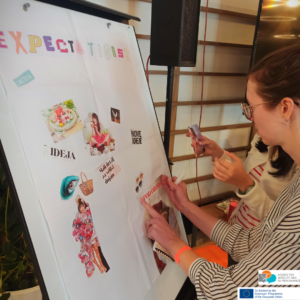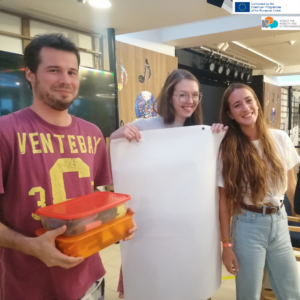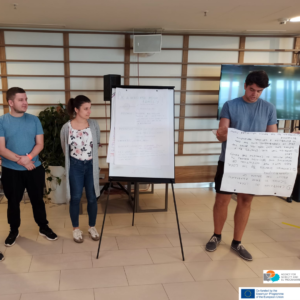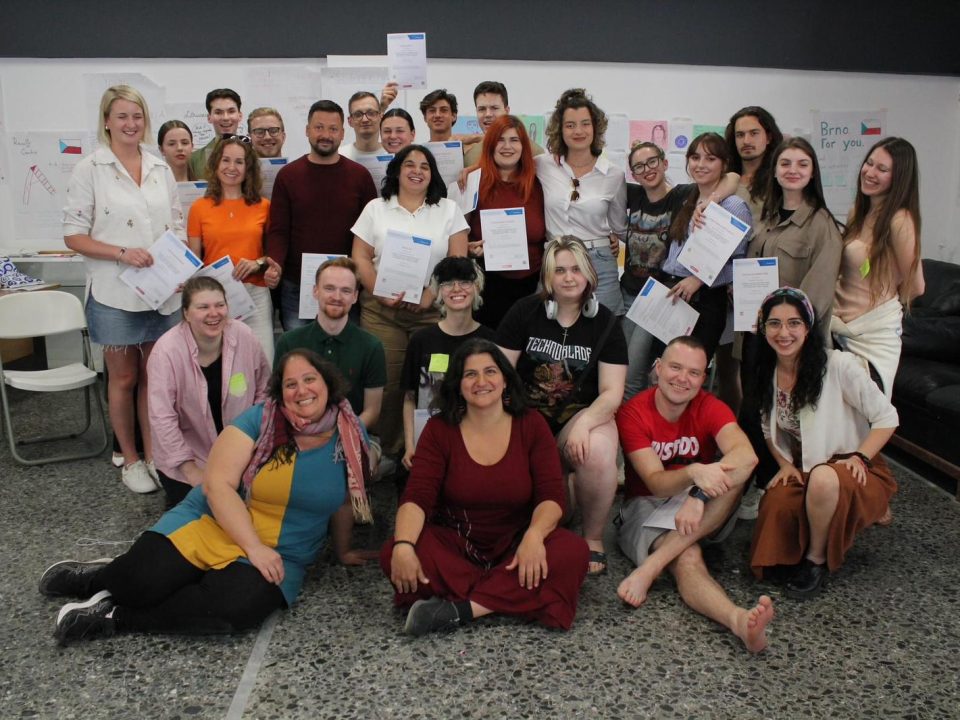From 13th to 18th of September 2021 European Association “World-Our Home” sent participants from Latvia to the Erasmus+ project – Training Course “Don’t be mean behind the screen” in Croatia organized by the Association “Alfa Albona”. They hosted 28 youthworkers from Latvia, Italy, Spain, Hungary, Serbia, Poland and Croatia.
Cyberbullying presents a dangerous threat in today’s digital world to youth people. In Europe, statistics and figures tend to broadly agree. Between one and five and one in three young people tend to experience cyberbullying at some point in their lives. According to the European Commission, cyberbullying is repeated verbal or psychological harassment carried out by an individual or group against others. It can take many forms: mockery, insults, threats, rumors, gossip, “happy slapping”, disagreeable comments, or slander. Interactive online services (e-mail, social media, instant messaging) and mobile phones have given bullies new opportunities and ways in which they can abuse their victims. The effects of cyberbullying on victims are well known. It affects their self-esteem, academic achievement, it can cause absenteeism; it feeds moderate school delinquency and violence, and can even lead to suicidal thoughts and attempts. Cyberbullying also has an impact on perpetrators, bystanders (who don’t feel safe in school wondering if they will be cyberbullied next), parents (the family environment), and schools (especially the school learning environment). Why is cyberbullying dangerous? Cyberbullying is open for business 24/7. Young people nowadays are nowhere safe. This generation is the digital generation and basically, their life is online. Internet interferes with every aspect of their lives. For the past few years, we read stories in the media about the connection between cyberbullying and the cases of teenage suicides. Good thing is that most tragedies don’t happen often, but it’s crucial to take cyberbullying seriously. The results are similar to surveys conducted around the world – cyberbullying is on the increase and children need protection.
The main objectives of the project are to:
– help participants understand what cyberbullying is and be able to identify it
– present good instruments, methods, and strategies to prevent cyberbullying in different environments
– raise young people’s awareness about the problem of cyberbullying and on the importance of joint efforts in tackling this issue
– show the dangers and harms behind cyberbullying– have education about peace, conflict management, and safe internet
– teach youth workers to be more tolerant and to embrace diversities among cultures and religions
-to empower youth workers in spreading the word on cyberbullying among youngsters using non-formal educational activities
– to provide participants with knowledge, skills, and confidence in the area of non-formal education, techniques, and messaging;
– to enable young people to develop their own educational modules which they will, in turn, bring to their local communities and implement withyoungsters
– to build up a network of anti-cyberbullying messengers that would allow participants to support each other
– to create a MANUAL about the prevention of cyberbullying.
The project was approved by Agency for mobility and EU programmes. Co-funded by the Erasmus+ Programme of the European Union.











